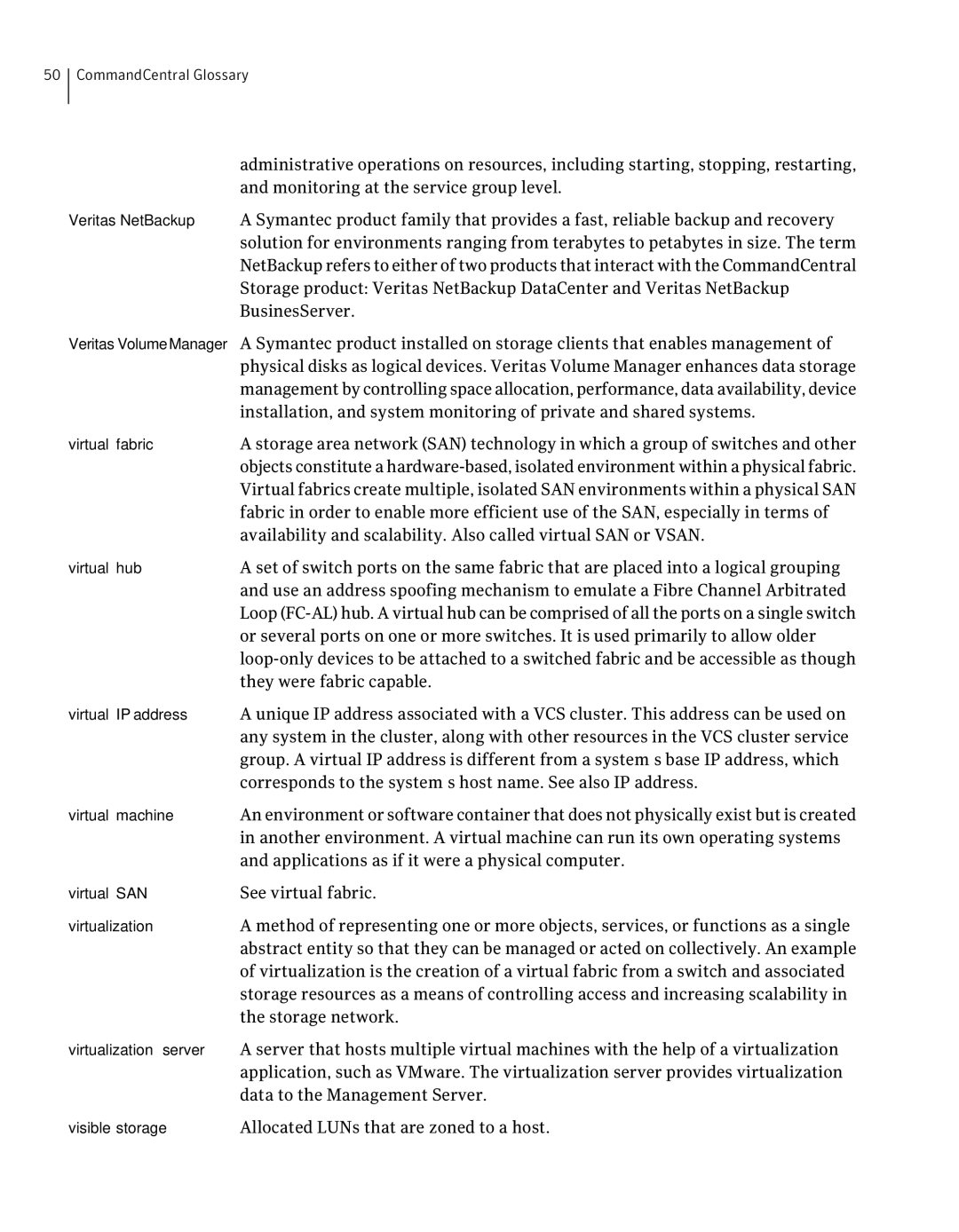50 ![]() CommandCentral Glossary
CommandCentral Glossary
administrative operations on resources, including starting, stopping, restarting, and monitoring at the service group level.
Veritas NetBackup A Symantec product family that provides a fast, reliable backup and recovery solution for environments ranging from terabytes to petabytes in size. The term NetBackup refers to either of two products that interact with the CommandCentral Storage product: Veritas NetBackup DataCenter and Veritas NetBackup BusinesServer.
Veritas Volume Manager A Symantec product installed on storage clients that enables management of physical disks as logical devices. Veritas Volume Manager enhances data storage management by controlling space allocation, performance, data availability, device installation, and system monitoring of private and shared systems.
virtual fabric | A storage area network (SAN) technology in which a group of switches and other |
| objects constitute a |
| Virtual fabrics create multiple, isolated SAN environments within a physical SAN |
| fabric in order to enable more efficient use of the SAN, especially in terms of |
| availability and scalability. Also called virtual SAN or VSAN. |
virtual hub | A set of switch ports on the same fabric that are placed into a logical grouping |
| and use an address spoofing mechanism to emulate a Fibre Channel Arbitrated |
| Loop |
| or several ports on one or more switches. It is used primarily to allow older |
| |
| they were fabric capable. |
virtual IP address | A unique IP address associated with a VCS cluster. This address can be used on |
| any system in the cluster, along with other resources in the VCS cluster service |
| group. A virtual IP address is different from a system’s base IP address, which |
| corresponds to the system’s host name. See also IP address. |
virtual machine | An environment or software container that does not physically exist but is created |
| in another environment. A virtual machine can run its own operating systems |
| and applications as if it were a physical computer. |
virtual SAN | See virtual fabric. |
virtualization | A method of representing one or more objects, services, or functions as a single |
| abstract entity so that they can be managed or acted on collectively. An example |
| of virtualization is the creation of a virtual fabric from a switch and associated |
| storage resources as a means of controlling access and increasing scalability in |
| the storage network. |
virtualization server | A server that hosts multiple virtual machines with the help of a virtualization |
| application, such as VMware. The virtualization server provides virtualization |
| data to the Management Server. |
visible storage | Allocated LUNs that are zoned to a host. |
